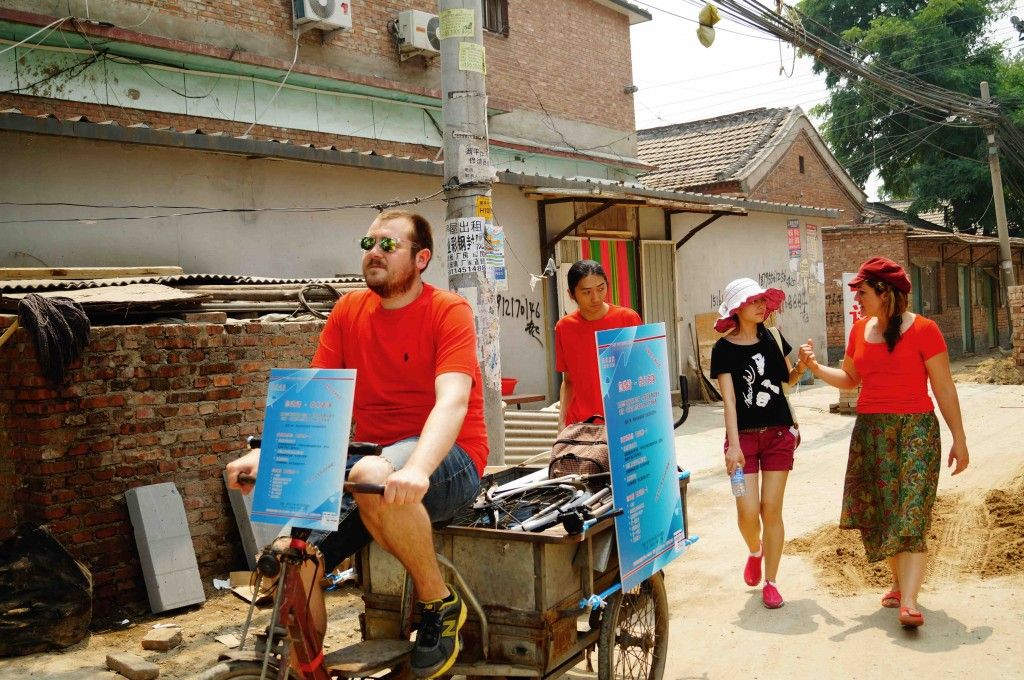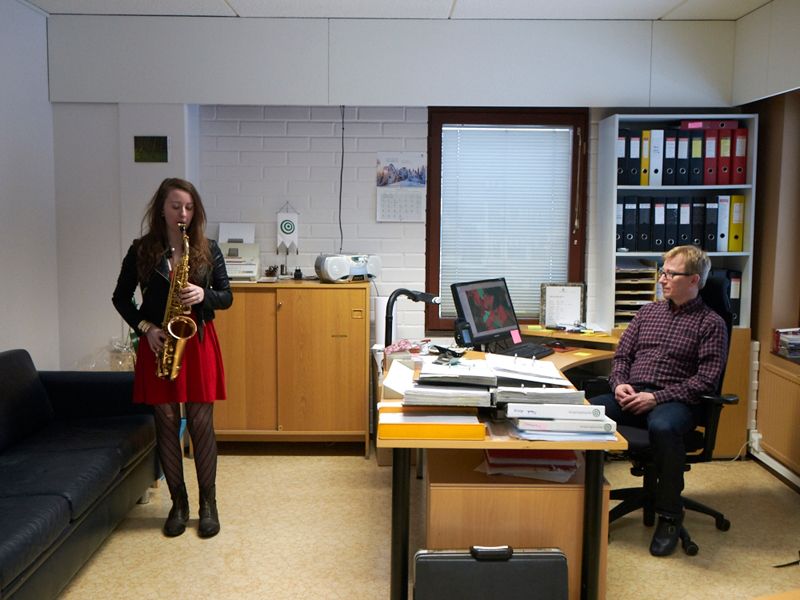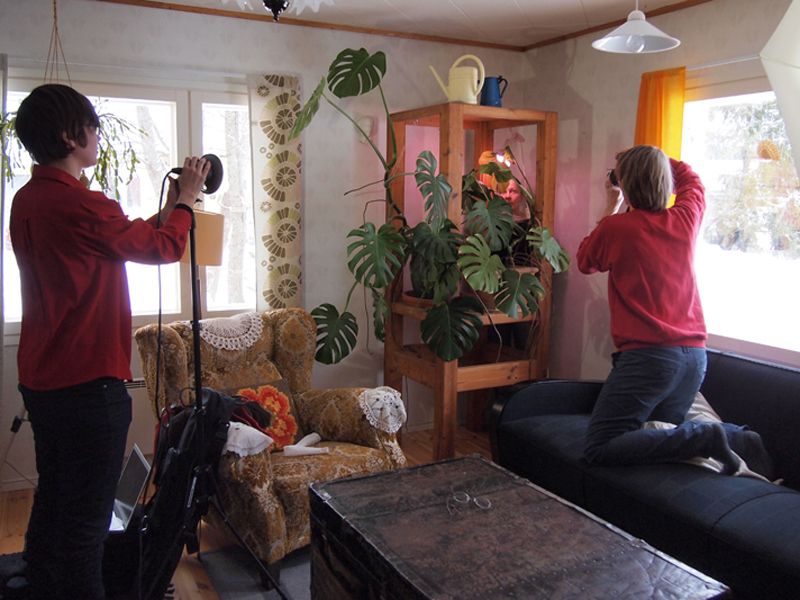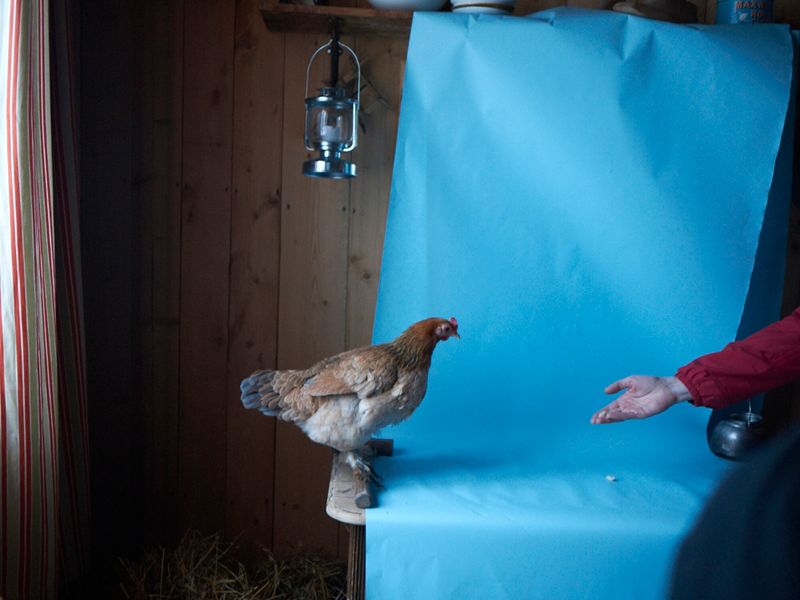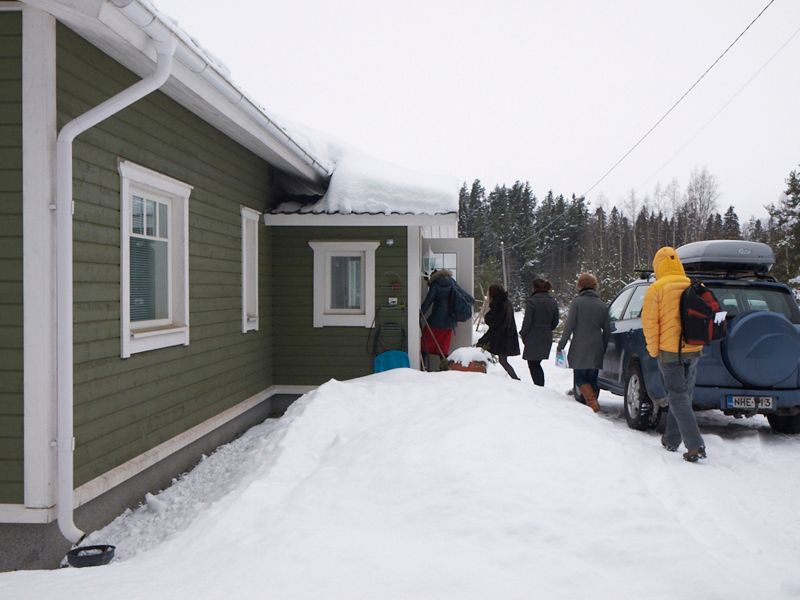Art On Demand is a collaborative participatory project which creates a platform from and for artists, curators, writers, theorists and audiences to collectively share and experience the creation of and encounter with art. Part of "Learning from COVID19: Reflections on knowledge-related commons and practices of self-organization amidst COVID19."
Art On Demand - Radicalizing Access to Art in Times of Crisis
28.10.2020
We are giving new life to an abandoned project that never got the care and attention it deserves. It regained relevance and urgency in times of the appeal to #stayhome during COVID-19. We are currently sharpening and expanding the idea of “Art on Demand (AOD) — Radicalizing Access to Art in Times of Crisis” and are looking for new collaborators — artists, curators, writers and thinkers — who are invested in countering isolation, individualism and alienation in these times of crisis. AOD opens digital and physical channels towards an art of social distancing (which is, more accurately, an art against social distancing!) by enabling micro-political, social distance-compliant artistic (inter)actions between diverse publics.
New website coming soon. Please get in touch with us if you’d like to contribute, comment, complain!
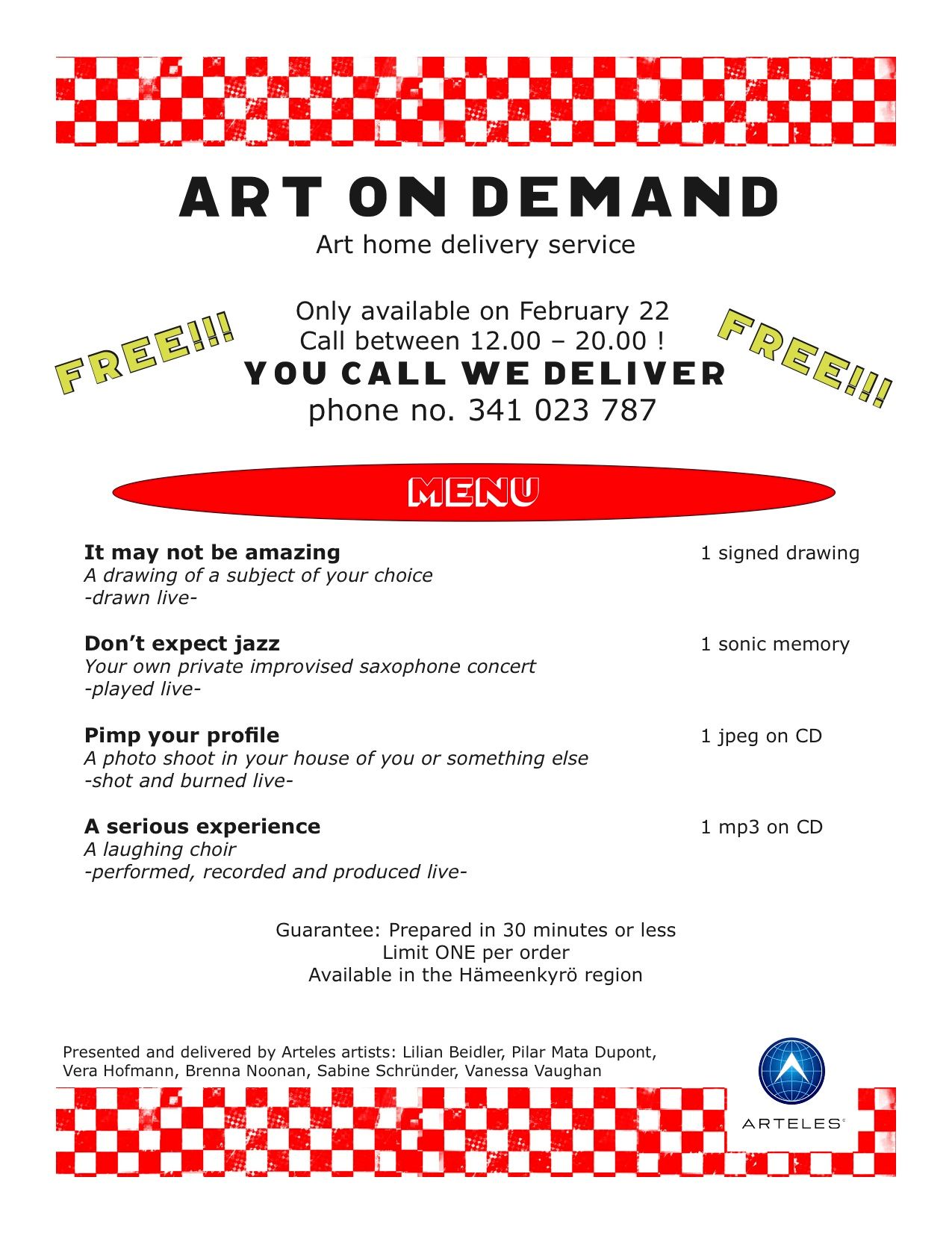
ART ON DEMAND (AOD) is a collaborative participatory project which creates a platform from and for artists, curators, writers, theorists and audiences to collectively share and experience the creation of and encounter with art. With a radical approach to accessibility, we address the systemic crisis of access to art, which includes the partial restriction of access to exhibition spaces, the shortage of funding, the encouragement of toxic competition amongst cultural workers, the favoring of curatorial dominance and the privileging of able-bodied people as audience. In contrast, AOD creates a low-threshold platform where anybody can request or offer art (see below). AOD advocates to reclaim art as a commons to be made accessible, addressable and experiential to everybody. The project invites people in challenging economic or political situations and in remote geographic locations and those with differently-abled bodies to participate and experience art.
AOD plays with the ambivalent term of ‘demand’, activating not only the economistic expectation to supply requested goods or services in time, but also the political dimension of demands as requests and articulations of the struggle for liberty, equality and solidarity. Briefly, articulating a variety of demands will spur the reclamation of art as public infrastructure, which will not be left to denigrate due to this crisis. To counter the anticipated loss of diverse cultural and artistic infrastructures and spaces, and to reclaim accessible art as a commons, the project takes a two-fold approach:
AOD ACTIONS:
OFFERING DEMAND: Artists announce planned artistic actions or interventions of custom-made artistic ‘services’ to be ‘delivered’ to the intimacy of the home or a specific social or local community; artists and curators are inventing new ways of creating encounter and intimacy;
REQUESTING DEMAND: AOD users or audiences place ‘requests’, and (groups of) artists respond to these requests in creative, collaborative, relationship-building ways; theorists embed past and ongoing artistic actions in discourses about critical audience studies, political theories of public and private space, affective politics of art-making and other instructive theories and approaches to understand and contextualize AOD actions, which have taken place in specific places with specific communities.
With this playful and participatory approach, AOD reverses the notion of ‘access to the arts’ because it brings art to the people, instead of waiting for its audiences. In contrast to classical outreach programs, AOD employs a self-determined approach to not instruct or predetermine people’s access to the arts, but encourages makers and recipients of art to constantly negotiate the forms and logistics of ‘demanded’ art.
2. AOD REFLECTIONS:
Each action and demand will be documented and commented online by involved artists and community members as well as by interested writers and theorists. This (self-)reflection creates an ecosystem of knowledge around accessibility, including public/private space, success/failure, proximity/distance, intimacy, economy, labor, which will inspire future actions. In sum, the project interrelates digital, theoretical engagements with the embodied, concrete experience of art.
The financial aspect of the project constitutes a third pillar of AOD and will be developed with tools known from other Commons projects in the next months.
COVID-19 — Amplifying the Need for Radically Accessible Art
In light of COVID-19, and in the long run, artists and cultural producers will necessarily have to find new modes of artistic production and cooperation. Instead of supporting institutions with our labor, be it via supplying creative work or visiting institutions, AOD takes a radical route towards new forms of artistic self-organization and access, based on values of solidarity, openness and malleability. It provides an online platform, which does not require a lot of social or economic capital, as a basic infrastructure to everybody. Moreover, the AOD platform serves as an umbrella and organizing term, under which all subsequent curatorial, artistic and intellectual projects will spin on into very different local, linguistic, age- and ability-related forms. Moreover, AOD seeks to develop, enable and document new approaches to cultural work and new alliance-building across social groups and sectors especially those who might be further marginalized by the loss of counter-cultural spaces.
Working from our own situatedness as queer folx, we especially aim to enable artistic creations (AOD Actions) and listen closely, publicize, discuss and document the ideas and experiences of marginalized people such as LGBTIQA+, People of Color and people with disabilities. The project centers people, their needs and demands, both in the sense of offering and requesting demands. Each AOD action is co-created in a framework of mutuality, trust and proximity despite (social and spatial) distance. AOD charts different encounters of artists and communities in the highly different corners of the world. AOD responds to the crisis of social proximity and distance by creating unique, micro-political and very personal moments of reciprocity. In that sense, AOD concentrates primarily on affective encounters, and builds friendship-like connections between artists and community participants. AOD thus foregrounds the irreplaceable intimacy that art can create, and re-activates people’ sense of longing for bodily, visceral experiences of art.
Contact us via info@a-o-d.org
“Learning from COVID19: Reflections on knowledge-related commons and practices of self-organization amidst COVID19” is the result of an open call for contributions launched by School of Commons in late April 2020. Shortly after COVID19 put much of the world into lockdown, the contributions form a collection of observations and different practices of learning, self-organisation, and building community amidst a global pandemic. The submitted contributions are varied in form and content, and have not been curated in any way, instead offering space to the diverse experiences and responses of all contributors.
Vera Hofmann
Vera (*1979) is a Berlin-based artist and curator.
Dr. Friederike Landau
Friederike (*1989) is a Berlin-based urban sociologist and cultural geographer interested in intersections of radical democratic political and spatial theory.
Bump Galaxy
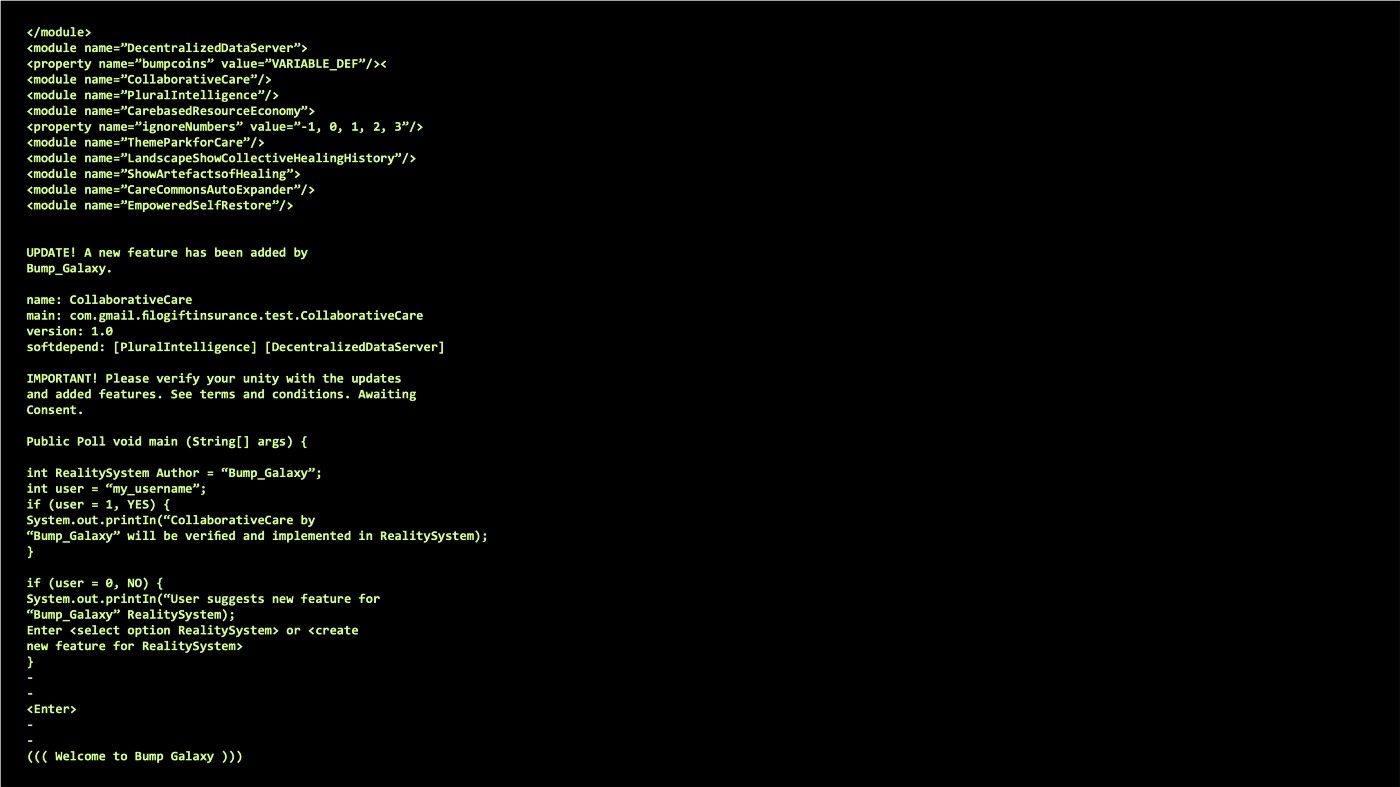
BUMP GALAXY is a virtual world and community for mental health. In it, players can visit several different Care Commons and engage with mental health professionals from around the world. Part of "Learning from COVID19: Reflections on knowledge-related commons and practices of self-organization amidst COVID19." Read more
I spat on it to put it back together
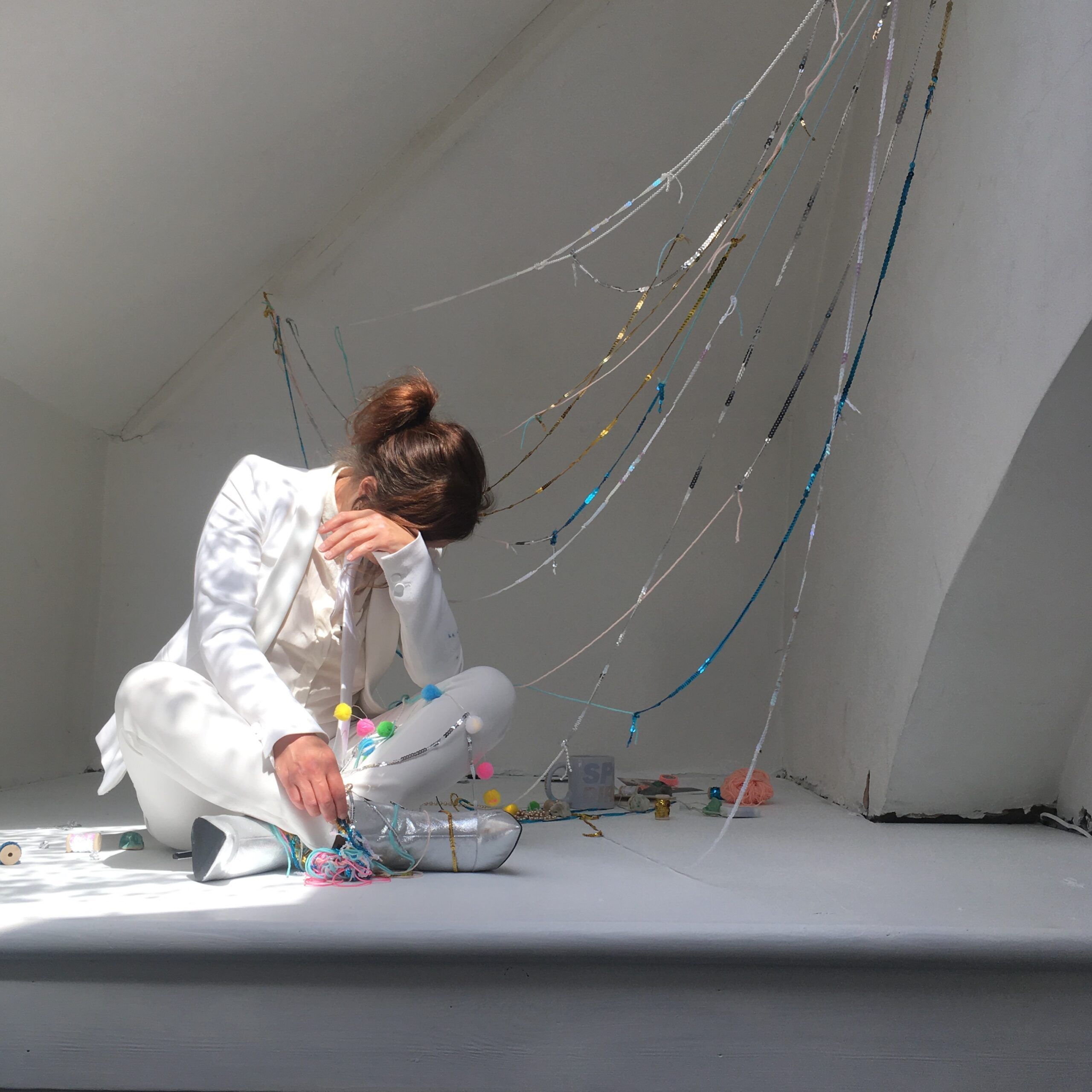
A self-conducted interview which offers insight into Price's practice and reflects upon the ways in which she positions herself both in her work as well as her community during the pandemic. Part of "Learning from COVID19: Reflections on knowledge-related commons and practices of self-organization amidst COVID19." Read more
Cuarentena Volumes I
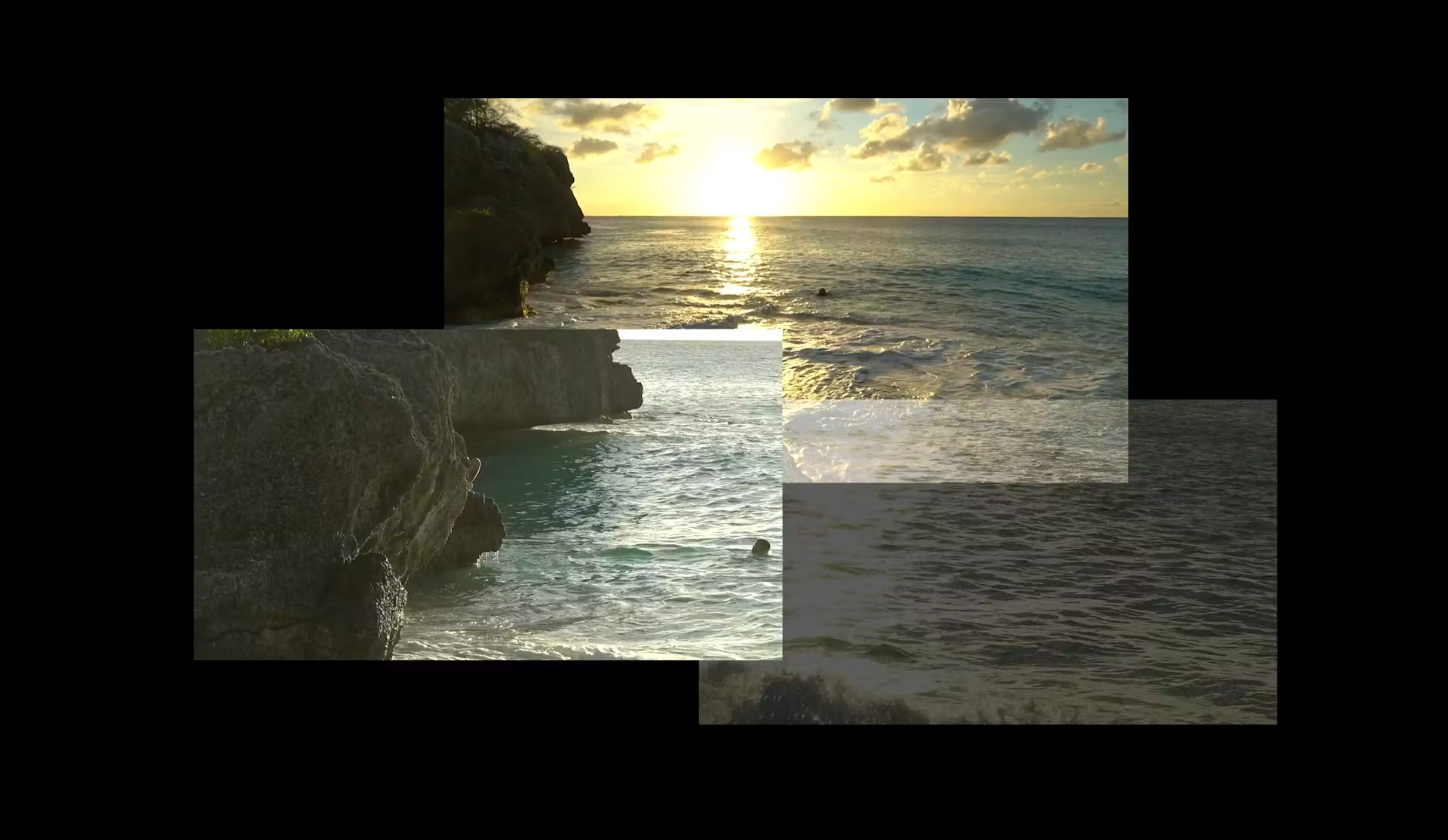
Cuarentena Volumes is abbreviated as cv: “these times might become a dent in the curriculum vitae, allowing to focus on the work itself.” Part of "Learning from COVID19: Reflections on knowledge-related commons and practices of self-organization amidst COVID19." Read more
Prom.run
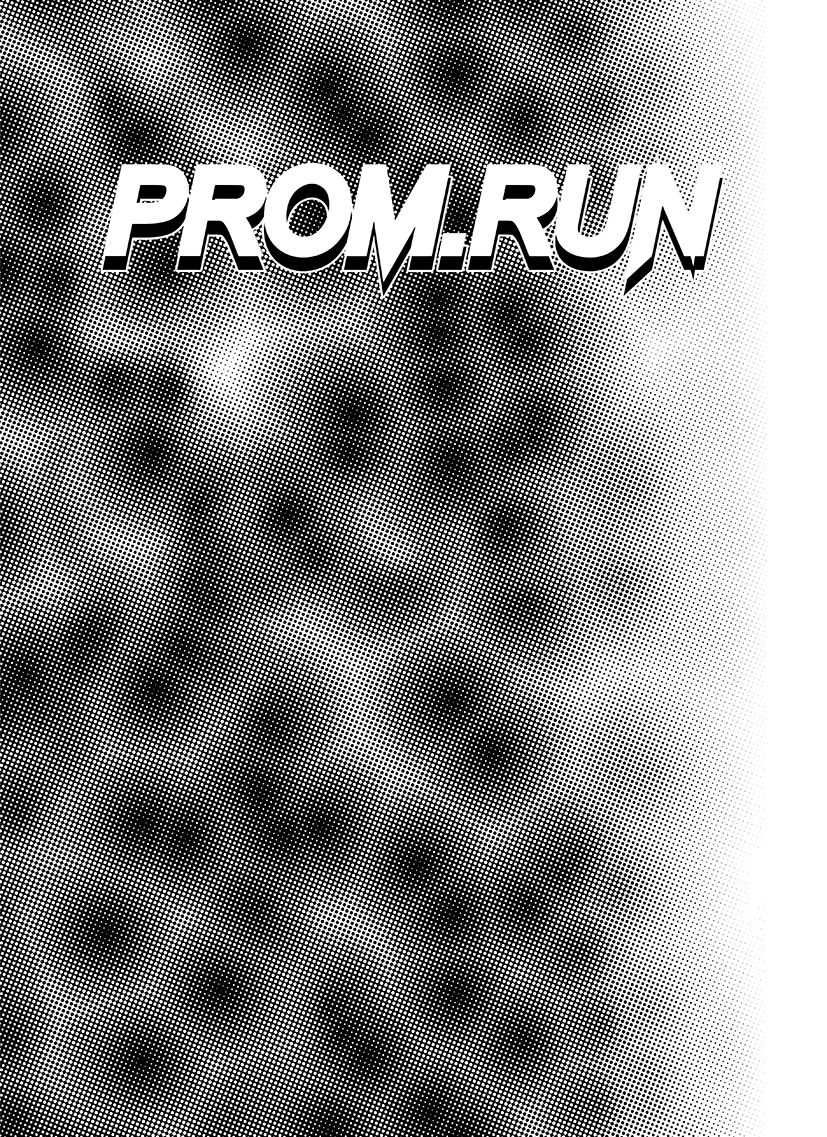
«Prom.run» is the publishing project that consists of a selection of materials that have inspired their practice as an art collective and addresses topics relating to self-organization and knowledge-related commons. Part of "Learning from COVID19: Reflections on knowledge-related commons and practices of self-organization amidst COVID19." Read more
Somebody
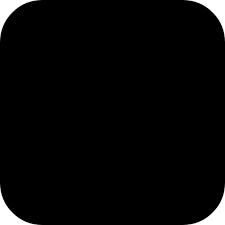
Centering the body without other bodies, Marquedant questions the parameters of being singular. Part of "Learning from COVID19: Reflections on knowledge-related commons and practices of self-organization amidst COVID19." Read more
A short reflection on what COVID-19 teaches us about science

An essay which offers a welcome respite in thinking about the future of knowledge production and its rootedness in community. Part of "Learning from COVID19: Reflections on knowledge-related commons and practices of self-organization amidst COVID19." Read more
A Conditional Construction in the Making
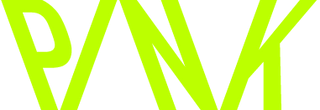
A text reflecting Morrison’s interests in discursive frameworks; performative platforms for critical enquiry; and ways in which we can facilitate and mediate multiple spaces for the generation of knowledge. Part of "Learning from COVID19: Reflections on knowledge-related commons and practices of self-organization amidst COVID19." Read more
GCD Memes
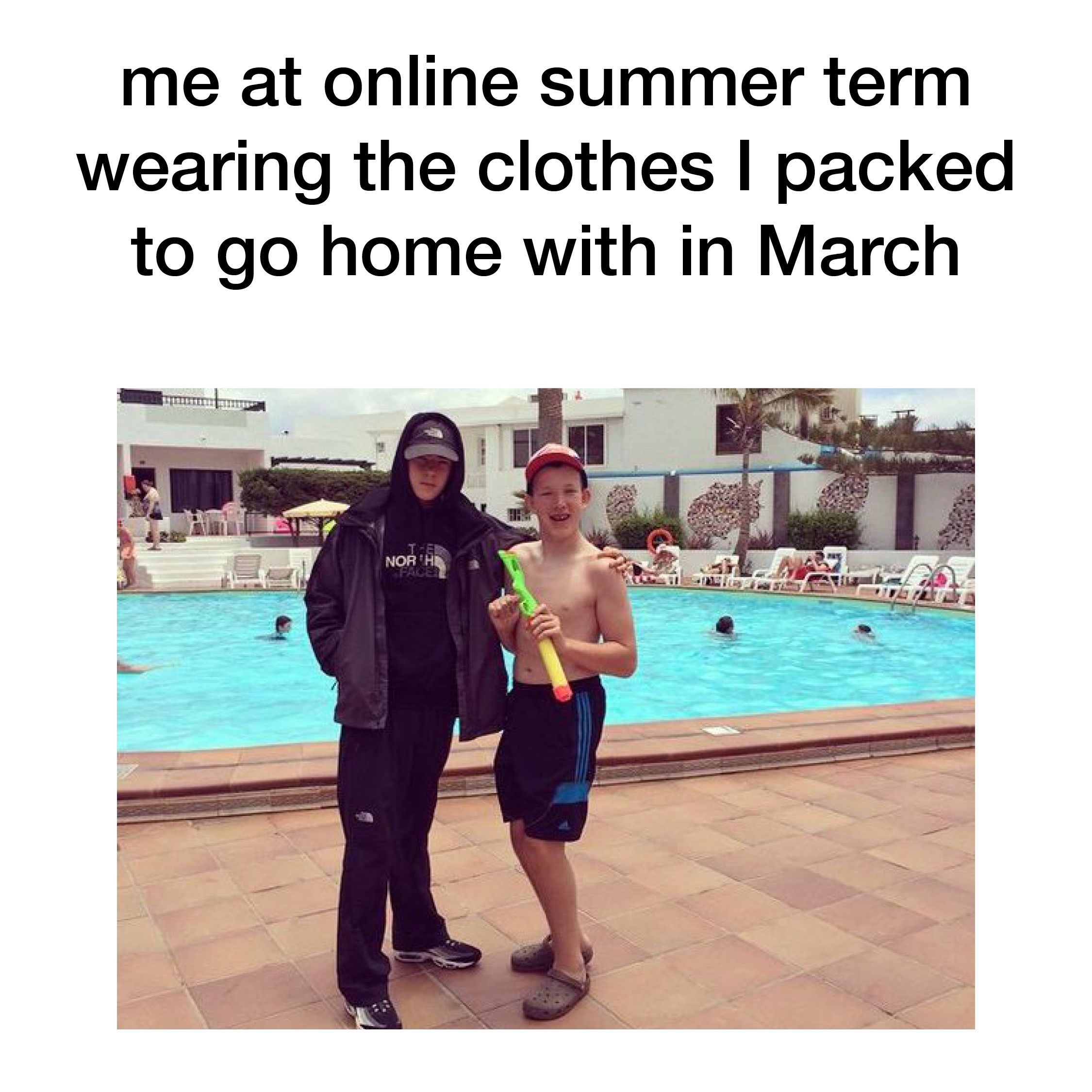
GCD Memes is a rolling body of work that attempts to reflect on the collective experiences of those involved in the GCD course at CSM from the student perspective. Part of "Learning from COVID19: Reflections on knowledge-related commons and practices of self-organization amidst COVID19." Read more
dream#1 2020

This video work is a dreamy, haunting piece that looks at the role our personal stories play in the making of history, as well as the actual political potency of our feelings. Part of 'Learning from COVID19: Reflections on knowledge-related commons and practices of self-organization amidst COVID19.' Read more
The Coffee Commons

This essay reflects upon the divergent responses to and asymmetrical consequences of COVID19 in McBride’s home country, South Africa, and her country of residence, Switzerland. Part of "Learning from COVID19: Reflections on knowledge-related commons and practices of self-organization amidst COVID19." Read more
The Anatomy of DIY-Objects in an Epidemic Infrastructure
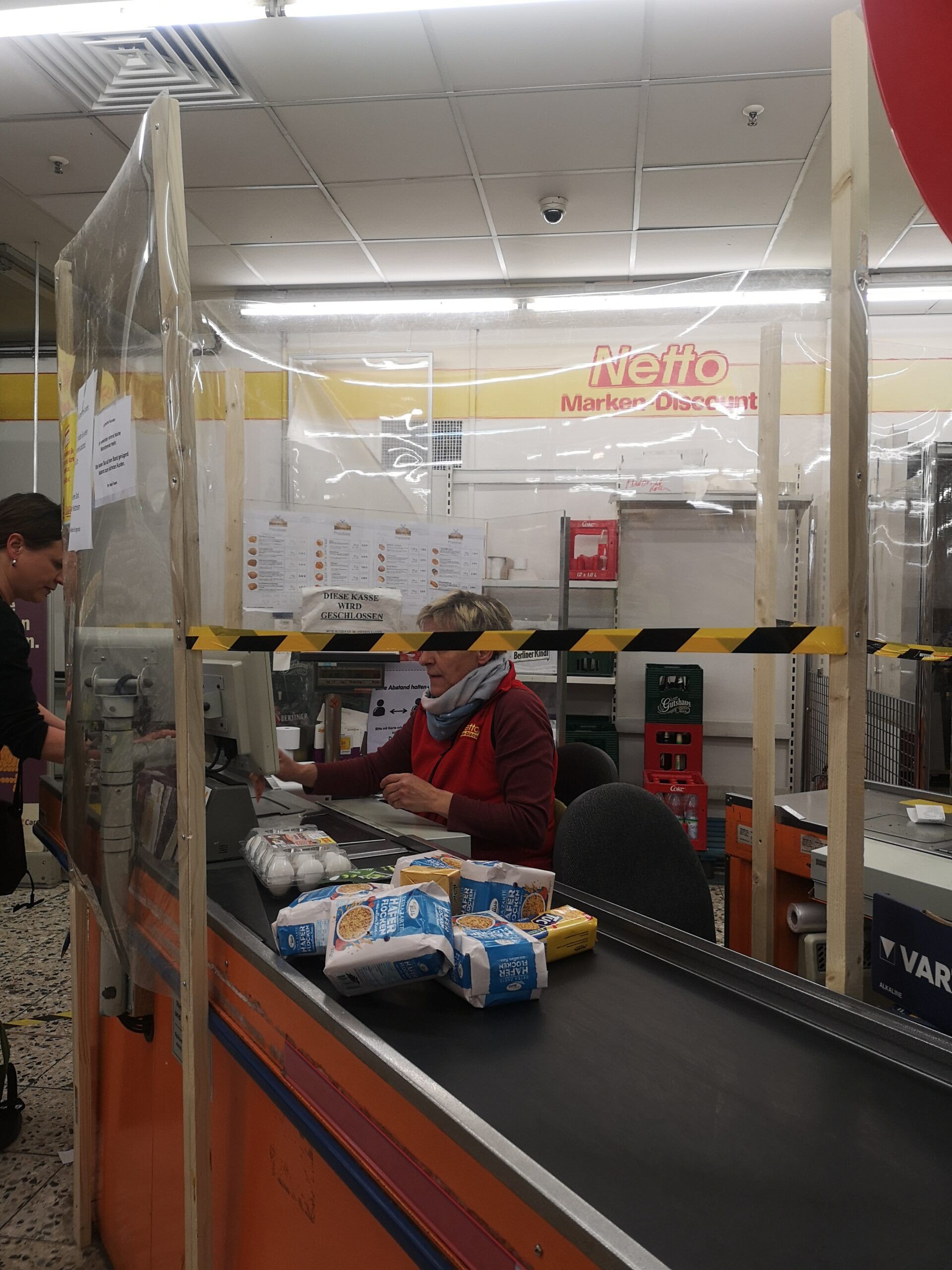
A short visual essay about the DIY infrastructures that pop up amidst a global pandemic. Part of "Learning from COVID19: Reflections on knowledge-related commons and practices of self-organization amidst COVID19." Read more
A three-minute excerpt from springtime 2020
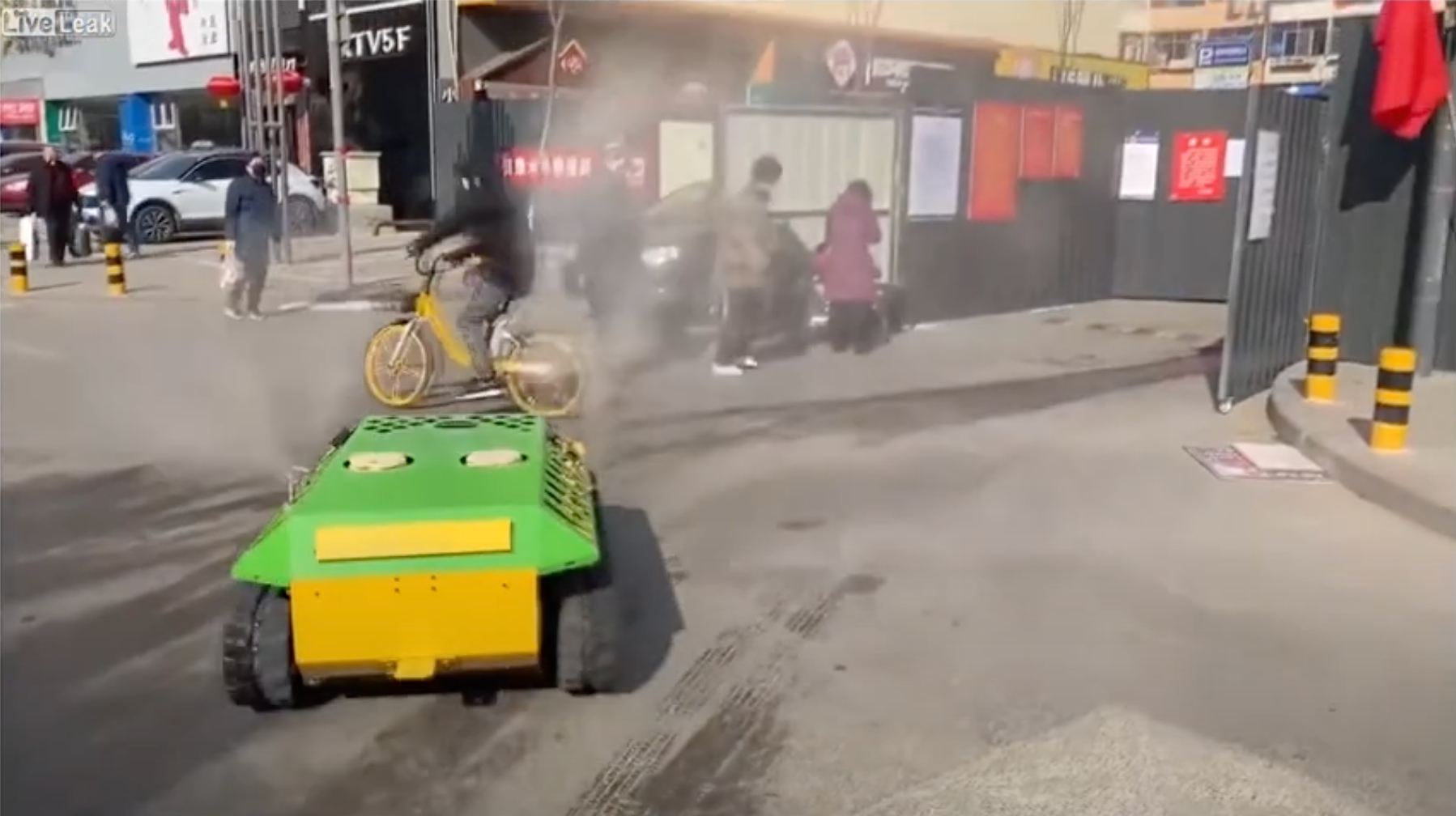
A collection of found footage from the lockdown period. Part of "Learning from COVID19: Reflections on knowledge-related commons and practices of self-organization amidst COVID19." Read more
Kein Strom

A short story, written as a diary entry, describes a lockdown-specific encounter. Part of "Learning from COVID19: Reflections on knowledge-related commons and practices of self-organization amidst COVID19." Read more
Wochenplan
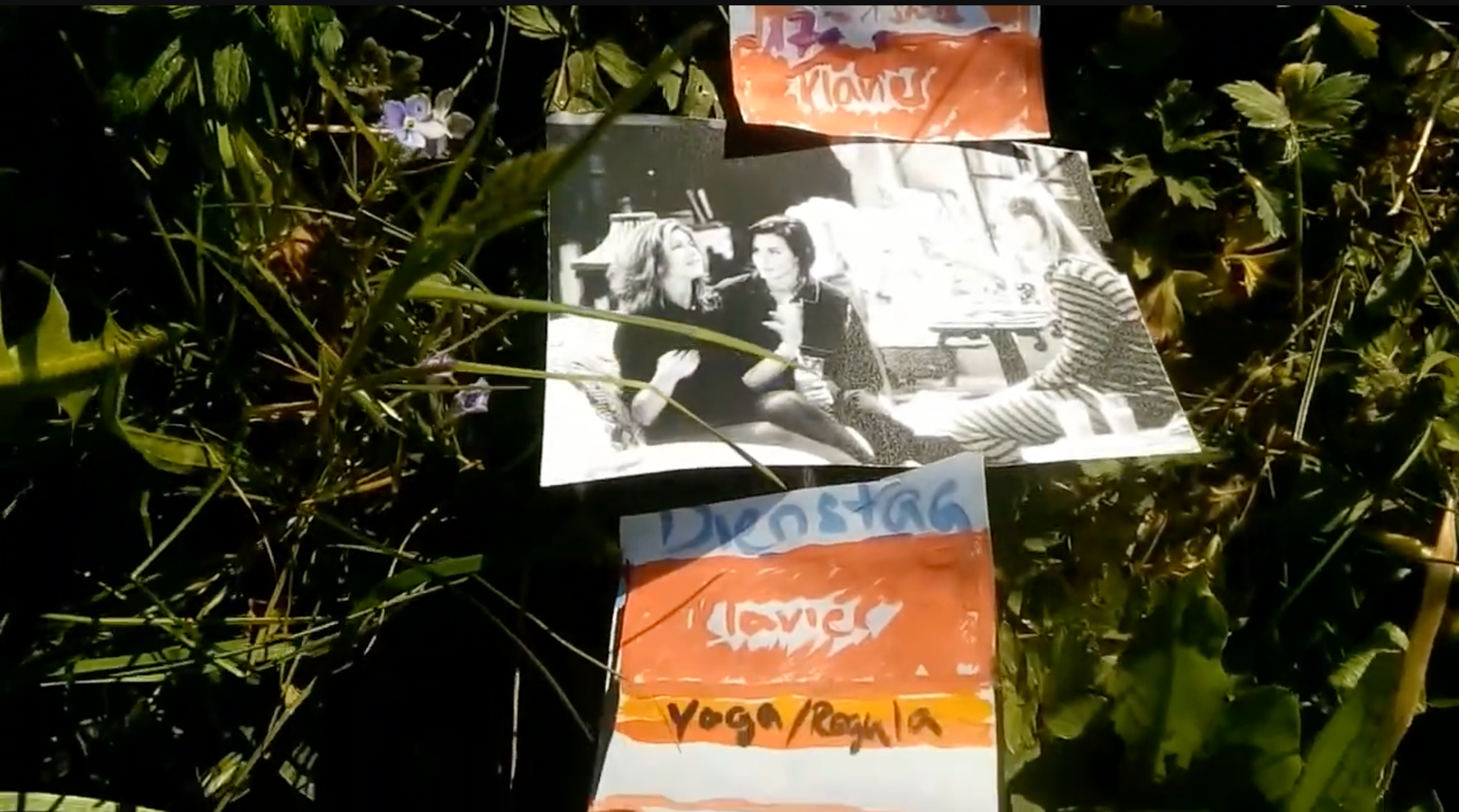
A short video that shows the ways in which Rieger organised her activities into weekly schedules in order to maintain her singing practice as well as her social life. Part of "Learning from COVID19: Reflections on knowledge-related commons and practices of self-organization amidst COVID19." Read more
